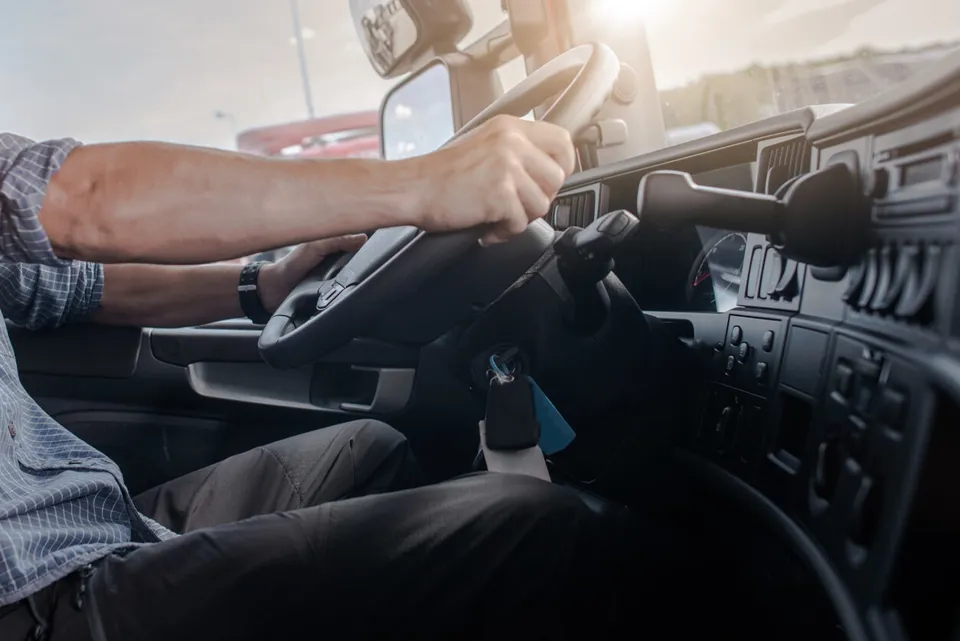The Department for Transport (DfT) has outlined plans to improve the large goods vehicle (LGV) test in its motoring services strategy.
The 27-page report, Safe, Secure, Sustainable: The Motoring Services Agencies, outlines proposals for changes to the way the Driver and Vehicle Licensing Agency (DVLA), Driver and Vehicle Standards Agency (DVSA) and the Vehicle Certification Agency (VCA) operate.
It includes a commitment to improve LGV test slot availability and to examine the possibility of allowing for separation of the on-road and manoeuvring components. Subject to addressing the legislative constraints, the DfT report says it will allow for the off-road component to be examined by third parties rather than DVSA examiners.
The Freight Transport Association (FTA) welcomed the move. Head of licensing policy and compliance information James Firth said: “We are pleased that the Government has committed to have a proper look at allowing non-government employees to examine the LGV annual roadworthiness test.
“Our members are all agreed that standards and safety must come first but, if done in the right way, this could offer tremendous flexibility for the industry.”
The report also says that the Government will investigate how it can raise the professionalism of LGV instructors. At present, there are no qualifications for providing instruction on an LGV other than being a qualified driver, a less stringent requirement than those for an advanced driving instructor.
The DVSA says it will reassess the Delegated Examiner (DE) scheme, which provides for bus or haulage operating licence holders and emergency services to provide tests for employees. It is considering extending testing to other operators’ employees. However, it says it will retain the current requirement for DEs to deliver at least 40 tests per year.
Firth said: “Road freight companies are too small to be able to satisfy the existing requirements, which is why, of the 100 or so delegated examiners, currently only two are in the LGV sector. This change could make it much more straightforward for new drivers to find a test and get their foot on the ladder in the logistics industry.”
Elsewhere in the report, there is a commitment from the DVSA to develop its ‘earned recognition’ scheme, which targets enforcement at operators that don’t provide open access to their records and maintenance programmes. It launched a pilot of the scheme last year and the DfT is keen to see it expanded.
Partly in response to the Glasgow bin lorry crash, the DfT has also signalled reform of the DVLA Drivers Medical Group (DMG), which handles 600,000 cases per year. It includes recruiting more medical and administrative staff, reviewing how it deals with complex cases and improving communication with customers.
The report states that the DVLA will develop a web application which will enable drivers to provide details online. At the same time, where it is necessary for the DMG to contact customers or medical practitioners, it says it will adopt a more tailored approach to these communications.
“It is important that, where DVLA is called on to make a decision on an individual’s fitness to drive, it should have complete and accurate information,” said the report. “However, there is a balance to be struck between making these decisions as quickly as possible and ensuring that they are based upon the appropriate information.
“People can be slow to recognise any gradual decline in their driving abilities. It may take the intervention of others to induce them to see how their driving has changed.”
The General Medical Council (GMC) has issued guidance for doctors on reporting concerns to DVLA, and has recently consulted on updating and strengthening this guidance. “We believe that this revised GMC guidance, when issued, will be the best way to address the problem,” said the report.
The merger of DVLA and DVSA’s contact centres will also be looked at and the DfT will investigate whether other existing qualifications such as NVQs can be aligned with Driver CPC.




















Login to comment
Comments
No comments have been made yet.